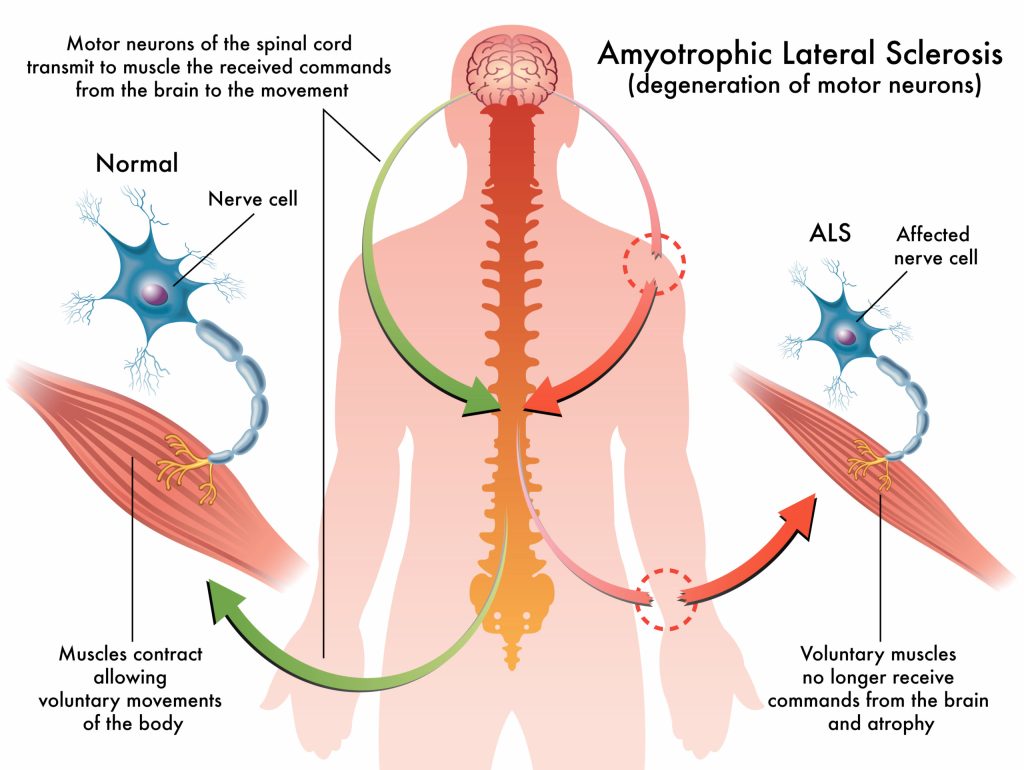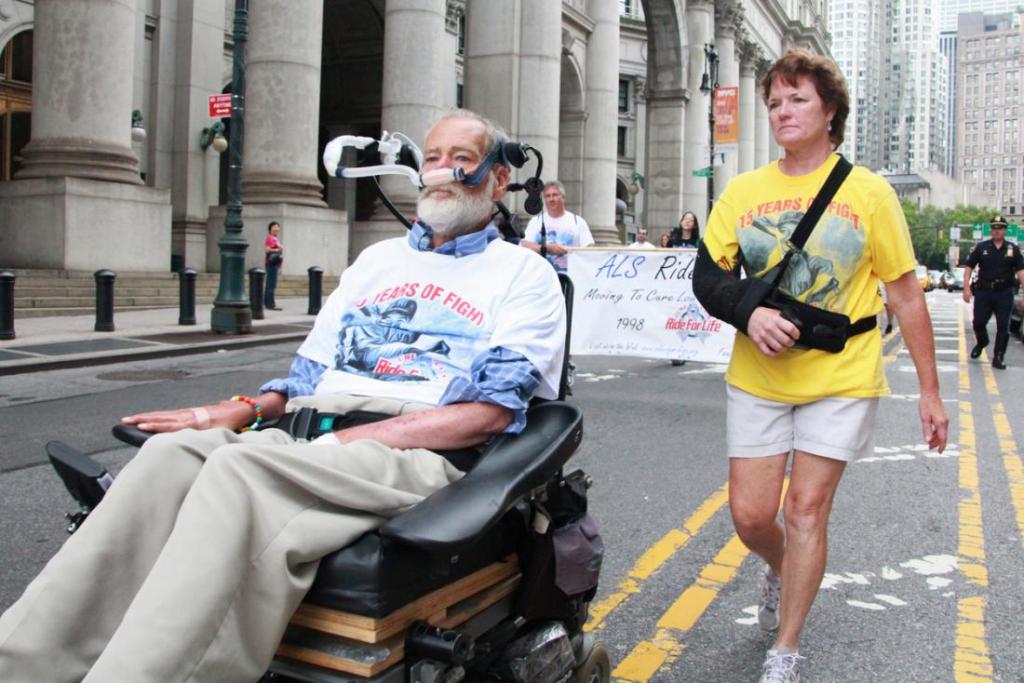The Amyotrophic lateral sclerosis that is also known as ALS or Lou Gehrig’s disease is a type of neurodegenerative disease. It’s a condition that affects the nerve cell that governs muscular movement in the spinal cord and the brain. Motor neurons, which regulate muscle, waste away in people with ALS and no longer transmit instructions to the muscles. This causes the muscles to weaken over time. Muscles in the legs, lips, arms and tongue may all be affected. Breathing becomes difficult or impossible if the chest and diaphragm muscles weaken. The ALS Clinic at Penn State Health Milton S. Hershey Medical Center provides a definitive diagnosis and comprehensive care to help people with ALS function as normally as possible and improve their quality of life.
The ALS Association has designated our clinic as a Certified Treatment Center of Excellence for the evaluation and treatment of ALS and associated diseases. Every year, about 80 new ALS patients are identified at the institution, with more than 230 being tracked long-term at any given moment.
What exactly is ALS?

Motor neurons, which regulate muscle, lose away from ALS and no longer deliver instructions to the muscles. This causes the muscles to weaken over time. Muscles in the arms, legs, lips, and tongue may all be affected. Breathing becomes difficult or impossible if the chest and diaphragm muscles weaken.
ALS causes are numerous
ALS is inherited in around one out of every ten cases. Having a close relative with ALS increases your chances of developing the illness. Military duty and frequent exposure to certain herbicides are two further hazards (insect killers). In the majority of cases, the reason is unknown.
Symptoms and Diagnosis of ALS
Amyotrophic lateral sclerosis, also known as ALS or Lou Gehrig’s disease, is a type of neurodegenerative disease. This is a condition that affects the nerve cells that govern muscular action in the spinal cord and in the brain. The ALS Clinic at Penn State Health Milton S. Hershey Medical Center provides a definitive diagnosis and comprehensive care to enable people with ALS function normally and improve their quality of life.
While the origin of ALS is unknown in most situations, roughly one out of every ten cases is hereditary. The following are some of the risk factors:
- Having ALS in a close family member
- Service in the military
- Some insecticides have been exposed to a lot of people.
What can you expect?

Patients who come to us for the first time are seen by an ALS expert neurologist (nervous system doctor). The objective is to be as certain about a diagnosis as feasible. After doing a battery of tests, the neurologist will meet with you, your family, and other caregivers discuss the results. If you have ALS, your doctor will provide you with information and discuss both proven and experimental therapies. At those visits, an ALS nursing specialist is frequently present. If not, we’ll set up a follow-up appointment with a nurse expert. The neurologist and nurse collaborate with you and your family to develop a treatment strategy for the condition and its symptoms.
Visits to follow-up
Patients with ALS are visited every three months at our multidisciplinary clinic, which is staffed by a variety of experts. During these sessions, you and your family will spend three to four hours in one examination room while several team members meet with you. You will always have your weight and lung capacity tested at these appointments as well as to see the neurologist and nurse.
